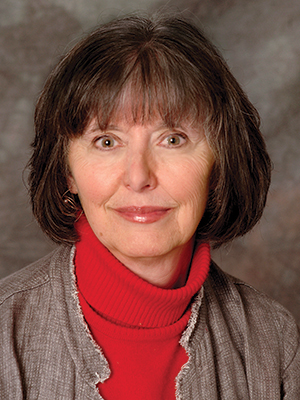
Hester Hill Schnipper Photo Courtesy of Beth Israel Deaconess Medical Center
LONG GONE are the days when people spent hours in a medical or large city library to gather information about their health condition. Now anyone can type a few words into a search engine and be flooded immediately with details about their cancer. This makes the Internet both the best and the worst tool for patients, who can easily become overwhelmed by details of survival statistics, treatment options and possible side effects.
In addition, not all online information is accurate. The following tips will help you to recognize reliable information and become more aware when it’s time to close that laptop or turn off your mobile device—particularly if what you’re reading becomes more frightening than helpful.
1) Remember that anyone can post anything on the Web, so there is no guarantee that what you are reading is factual.
2) Website addresses that end in .org, .edu or .gov generally are more reliable than those that end in .com, though there are exceptions. The latter is typically more commercial in nature.
3) National cancer organizations and professional bodies often have well-researched websites. Great examples include the National Cancer Institute, the American Cancer Society, CancerCare and the American Society of Clinical Oncology.
4) Nonprofit advocacy organizations often provide resources with helpful information about specific cancer types. Some good ones include Living Beyond Breast Cancer, the Pancreatic Cancer Action Network, the Leukemia and Lymphoma Society and the Prostate Cancer Foundation.
5) Be careful about relying on people’s personal accounts or stories. It’s impossible to know if the details presented are factual.
6) Never assume that a statistic or recommendation applies to you. There are so many possible variables, and no two people are the same.
7) Remember that many current published statistics are actually dated. For example, five- or 10-year survival rates are about people who were treated at least five years ago. These rates might not reflect recent progress in cancer treatments.
8) Be careful when joining online conversations and communities, which may not be moderated or vetted. Communities, such as CancerConnect, can provide excellent emotional support, but they shouldn’t be used as a source for medical advice.
9) We all have different information needs. Some people want to learn everything possible and others wish to know only what is necessary. Step away if the information is making you anxious or causing you stress.
Don’t hesitate to talk with your doctors about what you read. They can help you assess how meaningful the information is with respect to your particular condition and treatment. Accurate information can be powerful, but misleading information can be damaging. Know the difference.
Cancer Today magazine is free to cancer patients, survivors and caregivers who live in the U.S. Subscribe here to receive four issues per year.




